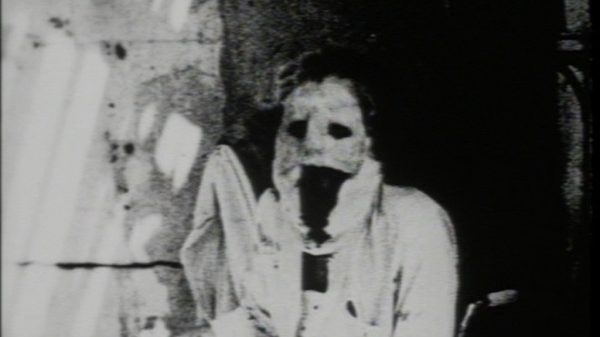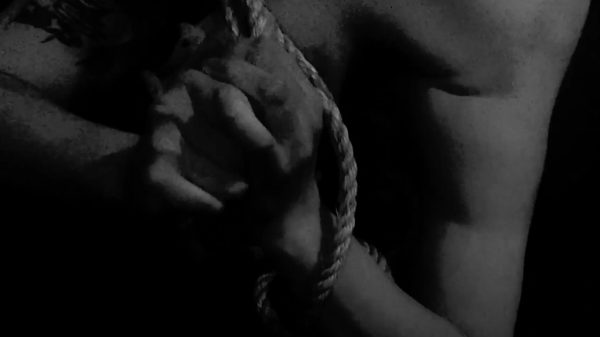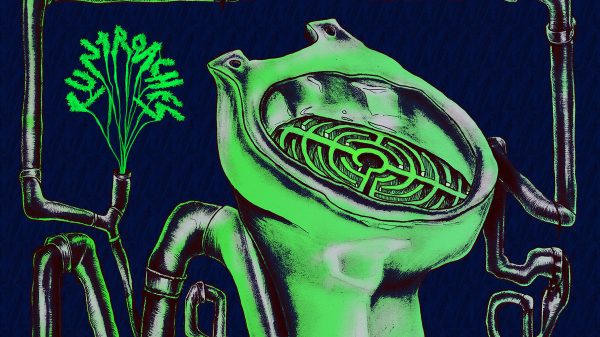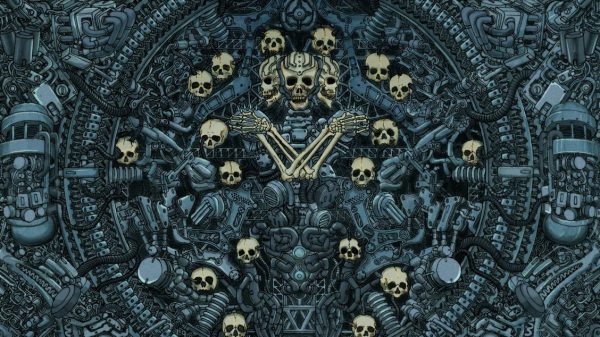Alain Paul and Tommy Four Seven are two extremely talented musicians and producers, and together they make the duo known as These Hidden Hands. They released their excellent, sophomore record in August 2016, following an impressive debut album. In this interview Alain and Tommy discuss how they started out, what is their production process, their affection for remixes, numerous collaborations, the Hidden Hundred label and their upcoming plans. Dive in, these are two very interesting individuals, and lose yourself within their astounding musical pieces.
Hey guys! Firstly, thanks for finding the time to do this interview, it is much appreciated! So, would you like to tell us how These Hidden Hands came to be? How did you guys meet, and decided to start this project?
Tommy: Alain and I both studied Music Technology at the same university in London and were also in the same class. Having similar tastes in music, we soon began collaborating together in our spare time and I actually signed our first collab track on my first techno label called Shooting Elvis. Whilst studying, I was also DJing around the UK and after finishing university I was left with the choice of further pursuing things where I was or shaking things up. My agent at the time suggested moving to Berlin and, as the sound I wanted to push didn’t really have a home in London, the thought of moving to Berlin, with its low rent prices and amazing scene, sounded like a more inspiring bet. After contemplating my ideas with Alain over a pint, he decided to join me for a few months with the goal of writing an album together. That soon turned into a permanent relocation for both of us but for one reason or another it would take us another 4 years before releasing that album.
Alongside These Hidden Hands, the Hidden Hundred label was also born. Can you explain what the reason was for starting a record label of your own instead of putting your music through an existing one? Does it give you more freedom? Also, so far you have only released These Hidden Hand records through Hidden Hundred, but is there a chance of signing other artists and release music from other projects as well?
Alain: We initially sent our debut album to a number of labels which we felt would be a good choice for us, but all declined for various reasons. Although we have both released records before on other labels individually, at the time These Hidden Hands was a brand new act without an existing fan-base, striving to push a new type of sound, for which there wasn’t really a scene. From a purely business point of view, it made zero sense to sign us, so you can’t really blame those labels. But that didn’t deter us from wanting to release our music, so we simply created our own label to facilitate that on our own terms.
The fact that having your own little label is never going to be as wide reaching as a much larger household name independent label has sort of been offset by the fact that a few key people in the industry have picked up on the music, which has lead to usage on TV and in movie trailers, etc. The irony is, now that we have laid the foundations and are releasing our second album, we would have definitely been in a much better position to get a deal with another label, but we decided for a number of reasons to stick with our own.
In terms of other artists, Hidden Hundred is exclusively a means of releasing our own music. We don’t have any interest in releasing other artists, except of course in the forms of remixes.

You had four releases out in 2013, but the next time we would hear from you after Remixes II, was three years later. Were you working on the material for Vicarious Memories or any other projects during that time?
Tommy: We both have other commitments outside of THH. Alain is also a mastering engineer and writes music as Shards. I produce and DJ as Tommy Four Seven and run my label/event concept; 47. Some drafts of Vicarious Memories began to take shape in 2014 and we even had some tracks sketched out a lot earlier, such as “The Telepath” which we started in 2009 and began life as field recordings captured in Neukölln. But we didn’t start to properly assemble the album until the end of last year and we only finished the writing process a few months ago.
A first taste from Vicarious Memories came with the Sz31x71 EP. Can you tell us why you chose the specific song for the EP? What was it that made it special? You also had a killer remix of the track from Roly Porter on the EP. How did this came to be? What do you think that Porter brought out of your music in his remix?
Alain: Because we like to release vinyl and also invite artists to remix our singles, there is a manufacturing and remix artist time requirement of multiple months which you have to plan in before the release date. Because of this, we had to cut the single to vinyl well in advance of the album actually being finished if we wanted to still release the album the same year. At the point we were at then, we assumed SZ31X71 would be the most representative track and so worked to finish that first so we could hand the stems over to Roly and get it manufactured whilst finishing off the rest of the album. Had we waited until the album was completed, we might have preferred to release “The Telepath” as the single, but this was one of the very last tracks to be finished and at that point in time we hadn’t even asked Julia if she’d like to sing on it.
In terms of the choice of remix artist, we’ve been fans of Roly Porter for a while and so last year he was on the top of our list as a potential remix artist. He’s carved out a pretty cool niche which is important for us when choosing someone to do a remix and when Roly sent his remix back, we were both totally blown away by it.
You have had some great artists remix your tracks in the past as well, including SHXCXCHCXSH, Vatican Shadow, Old Apparatus, Marcel Dettmann, Lakker, Atom, Kangding Ray and Ancient Methods among more. What does it feel like listening back to your music from their perspective? Do you, sort of, discover something new about your music in the process? Is there a plan to have more tracks, other than “Sz31x71,” from Vicarious Memories remixed?
Tommy: More remixes are definitely something we would like to do surrounding this album but as of the time of writing, we don’t know what that will look like, whether that will be a remix EP or two, or potentially even a remix album, let’s see who we can get.
It’s definitely exciting to download a brand new remix and listening for which sounds they have chosen to use and how they have crafted those sounds into their own approach and style. We never set any rules or request particular ideas, so it’s entirely up to the remix artist, which makes the whole process a lot of fun, unpredictable yet so far totally positive.
Earlier last year you released the EP These Moments Dismantled, which included two great tracks in “These Moments Dismantled” and “Variant” featuring Lucrecia Dalt. That was a great collaboration and it really shows in the end result. How did it come to be? Also, you released videos for these tracks, which were both stunning. Can you run us through the concept you had in mind for the EP? How does that reflect in the videos?
Alain: I met Lucrecia in person when mastering her album Syzygy on Human Ear Music a few years back but even before that I was a massive fan of her music, especially her album Commotus. So a while after I asked her about a possible collab with THH and luckily she was up for it. We recorded her vocals over a very early draft of the beat and crafted the original song with an unreasonably time consuming amount of sound design. A lot of the synth sounds are actually her voice.
Tommy was also friends with a great LA based artist called Jesse Draxler, whose aesthetic really went well with the single. We commissioned the front cover and through Jesse, we had Kati Milano shoot the video for the single, which exclusively used footage she shot in Iceland. It captured the emotion and atmosphere perfectly.
[youtube id=”BDOUHXVelok”]
How would you compare your debut album with Vicarious Memories? What can you tell us about the evolution of your sound? You also had a couple of guest appearances in the album, from Julia Kotowski and Ale Hop. How did those came to be?
Tommy: When writing our debut album in 2012, it was somehow hard for us not to be influenced by dancefloor culture, especially considering our backgrounds so we kept things like time signatures and tempos fairly accessible for DJs, we even made the LP 2 vinyls to cater for that too. With our new album, Vicarious Memories, we wanted to create much more of a listening concept and in some ways wanted to shun maybe of our previous pigeon holes. That being said, there are no rules with THH and so most of the time we want to explore and develop ideas away from our individual solo works. We both never like to repeat ourselves.
Alain stumbled upon Julia Kotowski at one of her performances in a small Berlin venue. It was a pretty simple process of sending her a demo and then Julia recorded and sent back an Ableton session with loads of vocal ideas which we could use not only to add a vocal layer but also as an important compositional tool for the track itself.
It was evident to both of us that “Lima3AM” needed some kind of spoken word in the style of a film narrator. Alain was fixed upon the Spanish language as he was influenced by South American experimental films. Ale Hop moved from Peru to Berlin last year and as well as being a vocalist produced some pretty rad experimental music. For our track, Ale wrote a perfectly fitting script and nailed exactly what we were looking for.
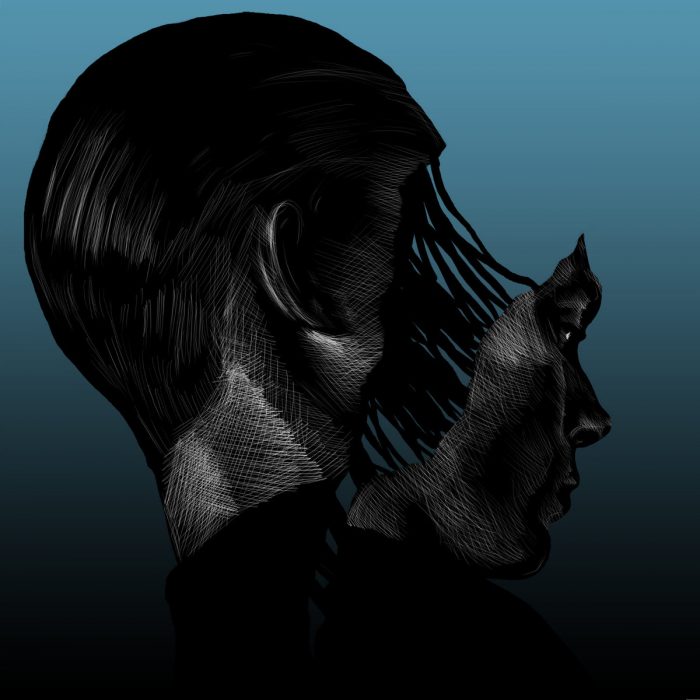
What is the concept behind Vicarious Memories? Is there a certain theme that you had in mind when you were working on the record? How important would you say is the presence of a concept, especially in your music, which is mainly instrumental, and how challenging is it to transmit that idea to the listener without the use of vocals?
Alain: I think the presence of an actual concept for an album, whether vocal or instrumental, is rarely a deciding factor of the quality of a record. The vast majority of the time, people listen to music because they like the sound and melody of it, and not necessarily because they enjoy or are even aware of it’s concept.
However, Vicarious Memories does have it’s own concept. Certain artists have the power to transmit memories through their music. You can hear a song and be transported in your mind to a place or time which you haven’t personally experienced. Normally, you would argue that is simply some form of arbitrary imagination, but given artistic license, what if it is actually the experiences of the composer woven into the fabric of the music through the compositional process? Each track off our album soundtracks various places at different points in history, and seeks to embed and transmit these experiences to the listener, although we also have only experienced those places through the stories and imagery of others.

What is your production process as a duo? How do you go about structuring and developing your tracks? What kind of setup do you use? What DAW was Vicarious Memories worked on? If I am not mistaken, Alain is a drummer, and you recorded a lot of sounds from his kit for your debut album. Was that also done in Vicarious Memories?
Tommy: Our usual method is to exchange and remix each other’s draft ideas. Once these form something a little more solid we would then work in the same studio together to develop the ideas further. I primarily work with Logic and Alain with Reaper so the exchange is always with audio, never with sessions – which is something we could improve. I’m pretty amazed by the routing possibilities and workflow of Reaper so I’m looking to switch DAWs by our next release. Would make things a lot easier. Alain’s drum kit is set up in the live room next our studio so it’s very easy and intuitive for him to lay something down, we used a lot less takes in Vicarious Memories however it served as a great creative catalyst.

Are there any more upcoming releases we should expect from These Hidden Hands and Hidden Hundred? Any EPs, singles or collaborations coming our way?
Alain: There’s no new solo material planned as of yet but then again the beauty of self releasing is that we can release new material with relatively short notice. We do plan to release a remix EP though, following on from the album.
Do you have plans for any future gigs?
Tommy: Last we had our biggest gig to date at Berlin Atonal where we presented our first A/V show; ‘Aphelion’. We will also be playing at Rewire Festival 2017 this April.







